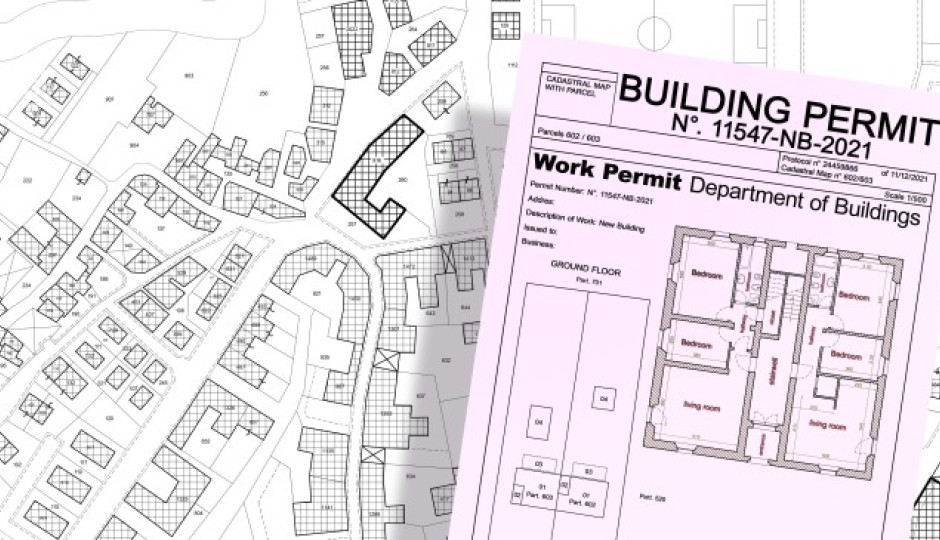Complying with building regulations for seamless project development
Building regulations exist to ensure the integrity of the development landscape.

On 7 November, Nigeria's Lagos State Government took decisive action, sealing an eight-storey construction project at Queen’s Drive, Ikoyi. The move was prompted by the project owner’s non-compliance with a government-issued stop-work order, citing the absence of crucial documents, including draining approvals, environmental impact assessment, traffic impact analysis and surveys.
This incident sheds light on a persistent issue in Nigeria – the serious consequences of non-adherence to building regulations by developers and project owners. Despite past sanctions and building collapses, some continue to proceed without obtaining necessary planning permits.
It is worth reminding ourselves of the significant commercial implications awaiting them.
When building projects face halts due to non-compliance, it initiates a chain reaction of challenges for developers, subscribers and project owners. The repercussions extend beyond the immediate construction phase, affecting timelines, contractual obligations and overall project success.
Implications for Developers
Delays in Project Completion: Non-compliance leads to stop-work orders, causing delays beyond the contractual completion date, directly affecting developers striving to meet deadlines.
Subscriber Discontent: Subscribers to offplan arrangements, eager to take possession of their properties, bear the brunt of these delays, leading to dissatisfaction and potential damage to the developer's relationship with clients.
Liability for Breach of Contract: The inability to fulfil contractual obligations on time exposes developers to potential liability for breach of contract, resulting in legal consequences and financial repercussions.
Financial Losses: Delays translate into increased project costs, including extended labour and material expenses, contributing to significant losses for developers. A project marred by delays tarnishes the developer's reputation, impacting their ability to attract future clients.
Implications for Project Owners
Unmet Timelines: Project owners, expecting timely completion, find their goal of having properties delivered within the agreed time jeopardised.
Budget Overruns: Delays often lead to increased costs, disrupting the initially planned budget, impacting financial plans.
Contractual Implications: Project owners may face contractual implications with stakeholders, including financiers and investors, straining relationships and impacting future collaborations.
Loss of Revenue Opportunities: Delays directly translate into missed opportunities for revenue generation, such as rental income, leading to financial losses.
Navigating Regulatory Compliance
To guide developers and project owners through these challenges, let us explore the specific requirements for obtaining permits in Lagos and the consequences of neglecting regulatory compliance.
Development in Lagos State is regulated by the Lagos State Urban and Physical Planning and Development Law 2010 (Urban and Regional Planning Law). Key authorities, including the Lagos State Physical Planning Permit Authority (PPPA) and the Lagos State Building Control Agency (LASBCA), oversee building construction.
Mandatory Step: Obtaining a Planning Permit
Before a developer or project owner commences construction, securing a planning permit from the PPPA is mandatory. Section 28(6) of the Urban and Regional Planning Law explicitly prohibits property development without obtaining a planning permit.
Requirements and Documentation: PPPA Regulations 2019
The Lagos State Physical Planning Permit Regulations 2019 (PPPA Regulations) provide clear guidelines. By regulations 3 and 4 of the PPPA Regulations, developers and project owners are required to submit a thorough set of documents to ensure compliance with regulations.
Here is a detailed checklist for a comprehensive building permit application:
- Survey plan.
- Title document.
- Architectural drawings.
- Structural drawings.
- Mechanical drawings.
- Electrical drawings.
- Physical Planning Technical Report (P.P.T.R)/Physical Planning Audit Report (P.P.A.R).
- Sub-Soil investigation/report.
- Environmental Impact Assessment Report.
- Lagos State Urban Renewal Authority (LASURA) Clearance.
- Ministry of Environment Clearance.
- Traffic Impact Analysis Report.
- Ministry of Transportation Clearance.
- Nigeria Civil Aviation Authority (NCAA) Clearance.
- Lagos State Planning and Environmental Monitoring Authority (LASPEMA) Clearance.
- Application Fee Evidence.
Failure to obtain a planning permit triggers a stringent response. The PPPA, under Regulations 23(2), can issue a stop-work order, directing the developer or project owner to apply for a planning permit. Developers and project owners must comply within 90 days and pay a penal fee equal to four times the assessment fee.
Continued development without a planning permit is an offense. Upon conviction, fines include N500,000 or two months of community service. Corporate developers may face a fine of twice the amount or a maximum of N250,000 where there is no option of a fine.
Ignoring notices, such as stop-work orders, may result in additional fines of up to N1,000 per day. In extreme cases, the PPPA is authorised to demolish the structure without further notice and recover demolition costs.
The recent sealing of the building project in Ikoyi serves as a stark reminder of the stringent consequences for non-compliance with building regulations in Lagos. Developers and project owners are strongly urged to adhere to the requirements for obtaining planning permits to avoid legal actions, financial losses, and damage to their business reputation. The regulatory framework is in place not just as a formality but as a crucial mechanism to ensure safe, planned, and sustainable urban development in Lagos. By prioritising regulatory compliance, developers and project owners protect their interests and contribute to the overall well-being and integrity of the city's development landscape.
Photo: Building permit (© Francesco Scatena | Dreamstime)

Osinachi Nwandem is a lawyer and arbitrator with vast experience and expertise in construction law and arbitration. He also had prior exposure to litigation and arbitration in a range of commercial disputes ranging from contracts, labour and employment, debt recovery, telecommunications, maritime and taxation.
He practices at the law firm of Aluko & Oyebode, which is based in Nigeria and has been rated as one of Africa's leading law firms.
Osinachi received his law degree from the Rivers State University of Science and Technology, Port Harcourt Nigeria. He obtained his LL.M. degree from the University of Ibadan, Nigeria.
He has a particular interest in assisting clients to resolve their construction disputes and is passionate about developing the practice of construction law in Nigeria. He is a member of the Institute of Construction Industry Arbitrators (ICIArb), the International Bar Association and the Nigeria Bar Association – Section on Business Law.
Osinachi is a regular contributor to several peer-review journals, texts and publication platforms including the Gravitas Law Review, AELEX Article Series and Mondaq, where he proffers viewpoints on recent developments in construction disputes and contracts.

